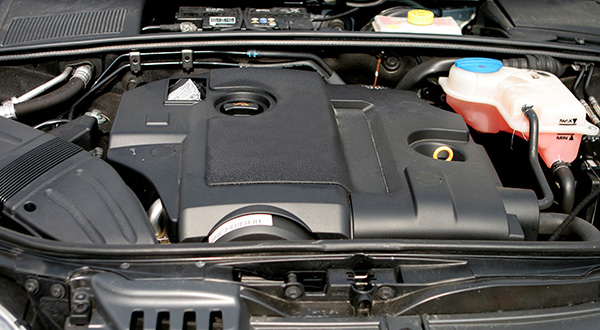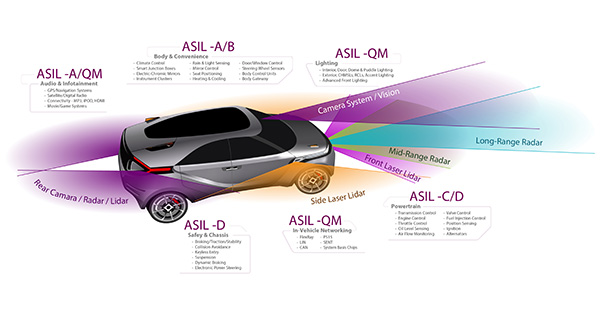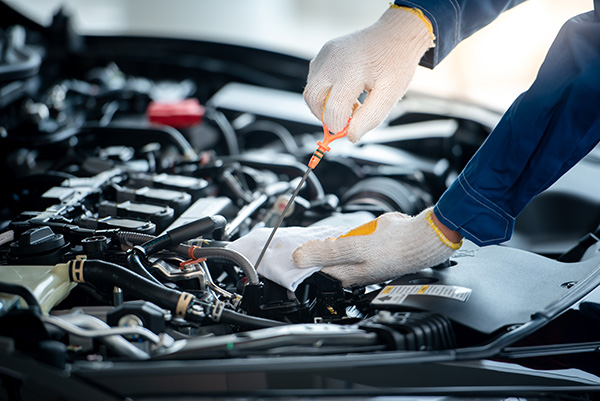Posted on 8/29/2025
%20copy.jpg)
Your vehicle’s oxygen (O2) sensor may be small, but it plays a big role in keeping your engine running efficiently. Located in the exhaust system, the oxygen sensor measures the amount of oxygen in the exhaust gases and sends that information to the engine control module (ECM). The ECM uses this data to adjust the air-fuel mixture for optimal performance, fuel efficiency, and emissions control. When the oxygen sensor begins to fail, it can cause a range of issues that impact your vehicle’s drivability, fuel economy, and emissions. Knowing the warning signs can help you catch the issue early and avoid costly repairs. Check Engine Light Illumination One of the most common indicators of a bad oxygen sensor is the check engine light. Because the oxygen sensor is vital to the engine’s fuel management system, the ECM will detect when it is not providing accurate readings and trigger the warning light. While the check engine light can come on for many re ... read more
Posted on 7/25/2025

When your car is running smoothly, it's easy to take for granted just how many components are working together to get you where you need to go. Regular maintenance, including tune-ups, is essential to keep your vehicle reliable, efficient, and safe. However, with modern vehicles becoming increasingly complex and “tune-ups” sounding like an outdated term, many drivers wonder: How do I know when my car needs a tune-up? What Is a Tune-Up Traditionally, a tune-up involved replacing spark plugs, adjusting the carburetor, and fine-tuning various mechanical parts. While carburetors are a thing of the past, the concept of a tune-up still exists, it just looks a bit different today. Modern tune-ups generally focus on inspecting and replacing wear items that impact your engine’s performance and fuel efficiency. These may include spark plugs, ignition coils, air and fuel filters, and other components depending on your vehicle’s design. Sign ... read more
Posted on 6/27/2025

If you’ve ever checked your rearview mirror and seen another car uncomfortably close to your bumper, you know how stressful tailgating can be. It's not just an annoyance but a serious safety hazard. Tailgating is one of the most common forms of aggressive driving, and it significantly increases the risk of accidents, injuries, and even fatalities. What Is Tailgating Tailgating refers to following another vehicle too closely, leaving little to no room for reaction if the lead car needs to slow down or stop suddenly. The ideal following distance is at least three seconds behind the vehicle in front of you under normal driving conditions. Tailgaters close that gap to just one second or less, which leaves almost no time to react. In wet or icy conditions, the safe distance should be even longer as stopping distances increase. The Danger of Reduced Reaction Time The most immediate danger of tailgating is the loss of reaction time. If the car ... read more
Posted on 5/30/2025

Modern vehicles are packed with advanced driver assistance features, and one that’s becoming more common is the lane departure warning system. You’ve probably felt a vibration in the steering wheel or heard a beep after drifting too close to a lane marker. That’s the system doing its job. But how does it actually work? And how much can it really help? Every driver should know about lane departure systems and how they contribute to safer roads. What Is a Lane Departure Warning System A lane departure warning system is designed to alert you if your car unintentionally begins to drift out of its lane. It works when the turn signal is off, assuming you didn’t mean to make a lane change. The system acts as a backup to your attention, especially during long drives, moments of distraction, or low visibility conditions. This system doesn’t steer the car back into place on its own—that’s the job of lane keeping assist, which we&rsqu ... read more
Posted on 4/25/2025

Buying a used car can feel like a smart financial move—until it isn’t. Hidden mechanical issues, flood damage, or shady repair history can turn what looks like a great deal into a costly mistake. That’s where a pre-purchase inspection (PPI) comes in. It’s not just an extra step—it’s one of the smartest moves you can make before signing any paperwork. A professional inspection helps you spot potential problems before they become your responsibility. Whether you’re buying from a dealership or a private seller, an independent pre-purchase inspection offers peace of mind, bargaining power, and real protection for your wallet. What a Pre-Purchase Inspection Includes A thorough PPI looks at more than just how the car runs. Trained technicians evaluate the entire vehicle from bumper to bumper, giving you a clear picture of its current condition. Mechanical Systems The inspector checks the engine ... read more